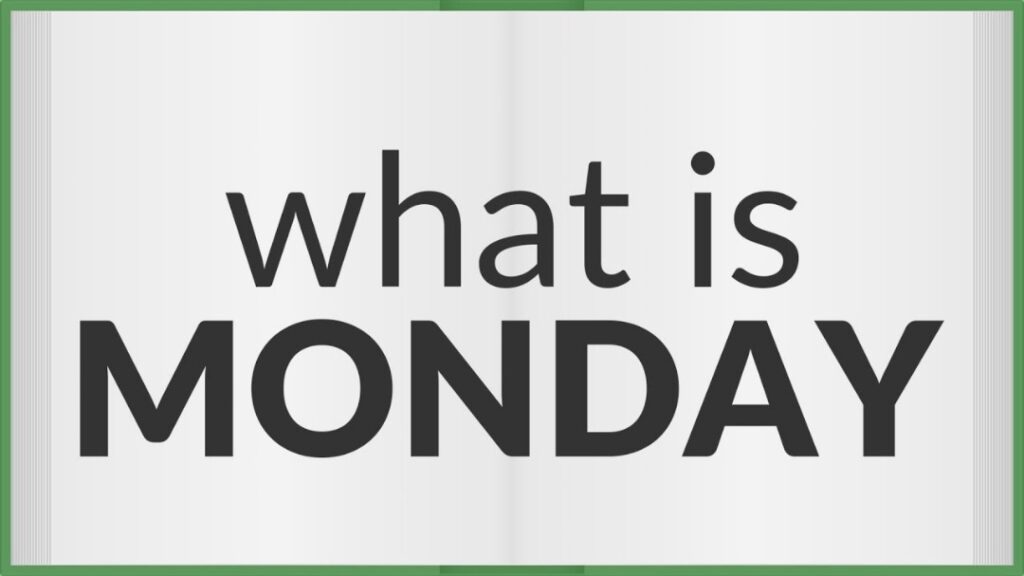
Monday: The Enigma of the Week’s Beginning

Introduction
Monday, the first day of the week, holds a unique place in our calendar. Its name, steeped in ancient mythology and linguistic evolution, reveals a fascinating story passed down through centuries.
The Mythological Origins of Monday
ORIGIN
The origins of the name “Monday” are shrouded in mystery, but its roots lie deep within ancient mythology. In many cultures, the days of the week were named after celestial bodies or deities, and Monday is no exception.
In Germanic mythology, Monday was associated with the Moon. The Old English word for Monday, “Monandæg,” translates to “Moon’s day.” This connection to the Moon is also evident in other languages, such as German (“Montag”) and Dutch (“Maandag”).
The Moon, in turn, was often associated with the goddess of the Moon. In Roman mythology, the moon goddess was known as Luna, and Monday was named “dies Lunae” in her honour. This name was later adopted into English as “Monday.”
However, the connection between Monday and the Moon is standard. In some cultures, Monday was associated with other deities or concepts. For example, in Norse mythology, Monday was named after the god Mani, who personified the Moon.
Regardless of its specific origins, the name “Monday” has come to symbolize the first day of the workweek in many cultures. It is a day often associated with a sense of dread or reluctance, as it marks the end of the weekend and the beginning of a new week of obligations.
Yet, Monday can also be a day of fresh starts and new possibilities. It is an opportunity to set intentions, plan, and embark on new endeavours. By embracing the mystery and symbolism behind its name, we can approach Monday with a renewed sense of purpose and optimism.
The origins of “Monday” are a testament to the rich tapestry of human mythology and culture. Whether it is associated with the Moon, a goddess, or a god, Monday remains a day that holds both challenges and opportunities. By understanding its mythological roots, we can gain a deeper appreciation for the significance of this day and approach it with a sense of wonder and possibility.
Conclusion
Monday is called Monday because it is the first day of the week in the Gregorian calendar, which is the most widely used calendar in the world today.
Follow us on socials → Telegram | X/Twitter | Facebook | WhatsApp |WhatsApp Channel |Mobile App
The name “Monday” comes from the Old English word “Monandæg,” which means “Moon’s day.” This name was given to the day because it was believed that the Moon strongly influenced the events that occurred that day.
Do you have a news article or press release? Talk to us! Could you” email our team at fmtblog4u@gmail.com or WhatsApp Here? You can stay anonymous or get credit for the news; it’s your choice.
SOURCE



